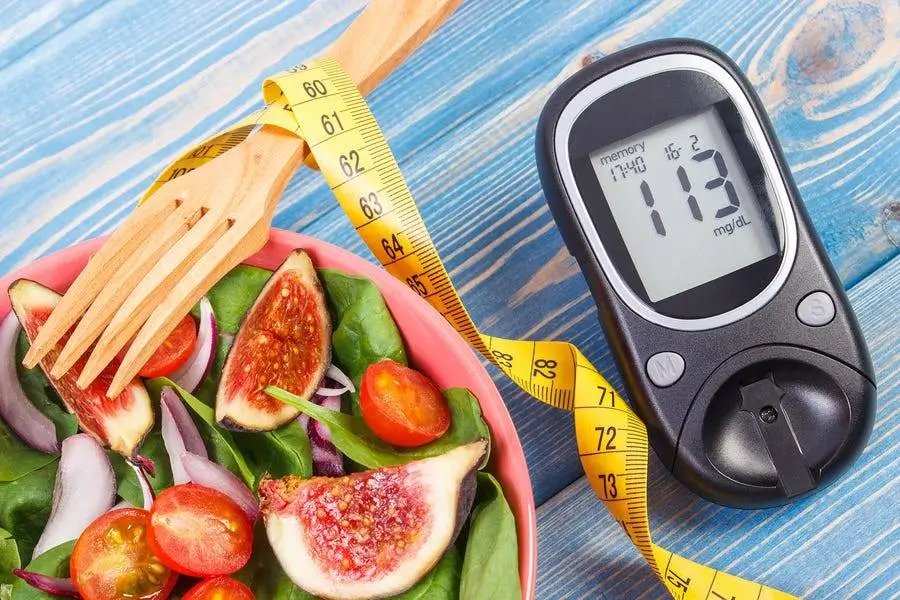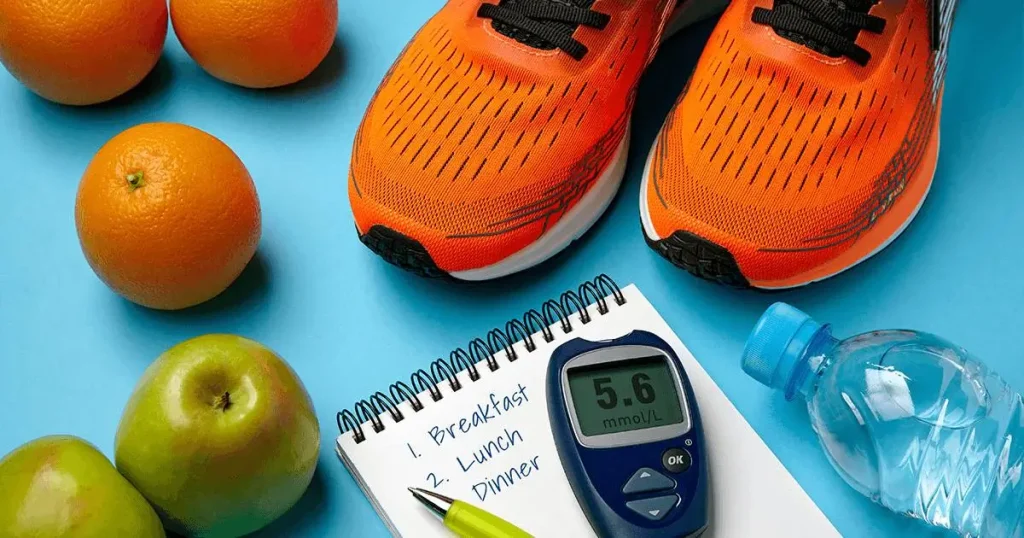Healthy Habits for a Lifetime: Your Guide to Long-Term Well-Being
Practical tips to create healthy habits, manage triggers, and thrive post-treatment.
Table of Contents
Treatment may end – but your progress can continue. Use the time of your treatment to build your new happy You!
Some weight control medicines can work wonders by curbing appetite and, for some, even reducing alcohol cravings. Although they will help you lose weight, they are not a permanent solution for most people.
When your treatment with the medication ends, old habits — especially around food and drink — may start to resurface. That’s completely normal.
The good news: this phase is also a valuable opportunity to build new, healthy habits that truly support you.
These new routines will help you stay grounded — even long after you’ve stopped taking the medication.
They’re your personal key to feeling well and living well, entirely on your own.
But why is treatment with this medication often stopped in the first place?
It’s not uncommon for people to discontinue these medications within the first year.
- Common reasons include digestive discomfort or changes in mood.
- What many don’t know: Around 95% of the body’s “feel-good hormone” serotonin is produced in the gut. When appetite is suppressed, serotonin production may also decrease – which can affect mood and, in some cases, lead to low or depressive feelings.
- Even after stopping the medication, things can feel emotionally challenging – especially if weight begins to return.
Right now you have a valuable opportunity.
Because appetite is usually significantly reduced during this phase, many people find it easier to develop new, healthy routines relating to nutrition and well-being. These help you to continue to feel light, stable and comfortable in your own body.
It can be very helpful to use this time consciously – not out of compulsion, but as an opportunity to organise your everyday life in a way that is good for you in the long term.
A gentle new beginning – supported by your brain.
Starting this medication is more than just a medical step – it’s also a meaningful moment to build new, healthy habits into your daily life.
It’s not about sheer willpower. It’s about what’s already within you: your brain’s lifelong ability to adapt and grow. This capacity, called neuroplasticity, allows you to form and strengthen new patterns – step by step, in your own way.
Even small, intentional changes can help your brain gradually adjust to healthier routines. That’s how you lay the foundation for long-term well-being – during treatment and beyond.
Consider this phase of treatment with weight control medicines an invitation to care for yourself – and to shape the version of you that feels lighter, stronger, and more at ease. In your own time, in your own way.
Creating healthy habits while taking medication is key to long-term well-being.
A moment that the brain helps shape
There is a real chance of change.
During treatment, more than just the feeling of hunger changes – new conditions are also created in the brain.
When the appetite is dampened, a space is created in which conscious behaviour can be established more easily. This is also known as utilising neuroplasticity. This is precisely where the opportunity lies: now is the moment when new routines can take root particularly well – be it in eating, exercising or dealing with stress.
Our newsletter accompanies you in this process – with small, concrete impulses that you can apply directly in your everyday life.
The aim is not to achieve perfect discipline, but to develop new habits that really suit you – during treatment and beyond.
Because many of these changes have a double effect: they stabilise your well-being while you are taking the medication and make the time afterwards easier.
When the medication is later discontinued, healthy patterns remain – such as more conscious eating, a relaxed approach to alcohol or small exercise rituals.
Change does not need to be all-or-nothing.
It needs repetition, patience – and sometimes just the right moment to get started. That moment could be right now.

What you do every day makes you strong
What might your lighter, healthier life look like?
Imagine this: your day feels clearer. You move through it with more ease – both physically and mentally. Maybe you’re sleeping better, eating more mindfully, or enjoying movement that truly feels good to you.
What exactly would be different?
What does your day look like when you feel more at home in your body – and more in tune with yourself?
- Perhaps you’re already sleeping well – or you sense there’s still room to grow.
- You might explore new eating routines: regular meals, a little less sugar, and more conscious enjoyment.
- Maybe it also means limiting alcohol or sugary drinks to certain days – not as restriction, but as a decision for more energy and clarity.
- You may also notice how good movement feels – whether it’s walking, biking, dancing, or a sport you enjoy.
Whatever fits into your life: it’s about finding habits that support you – and that are here to stay.
Because these routines can help you maintain both your well-being and your lighter weight even after the medication ends.
And the best part? With time, they become second nature.
It usually takes about six weeks for your brain to form new neural pathways and for your body to integrate new patterns.
What may feel new and unfamiliar at first can gradually become a familiar part of your everyday life – steady, grounding, and supportive.
Mindful Eating and Drinking
- New decisions for new outcomes.
It’s completely normal to crave familiar favorite foods while you’re in the process of losing weight. But changing your behavior also means taking new paths – so that the outcome can begin to change in the first place.
If we continue eating the way we always have, our weight is likely to remain the same – or return once the medication is discontinued.
You might be thinking to yourself:
“I’m already eating soo little – at least I want to keep enjoying the things that used to make me feel good.”
Often, these are highly processed foods – sweet, fatty, or artificial – that trigger cravings, but unfortunately do not support your body’s health.
What many people don’t know:
During weight loss, the composition of your gut microbiome changes.
That’s a positive effect – helpful bacteria begin to thrive. These support your digestion, strengthen the immune system, and interact with your nervous and hormonal systems.
They can even influence your mood and help reduce inflammation and physical discomfort throughout the body.
However, highly processed foods like fast food, artificial sweeteners, or convenience meals can disrupt this healthy balance again.
That’s why this moment is ideal to begin gradually replacing those meals with fresh, unprocessed ingredients: fruits, vegetables, high-quality proteins – prepared in your own way, at your own pace.
And yes – there can still be room for a piece of chocolate. 😉 Mindful enjoyment is part of a sustainable approach.
You’ll likely notice that this new way of eating feels good – not only while you’re eating, but even more so afterward.
Your body may feel lighter, more balanced, more at ease. And your serotonin levels – your mood and emotional stability – benefit too.
Food can be joyful.
And your body deserves to feel the difference.
- 2. Your future self is just as important as your current self.
Eat slowly and consciously pay attention to the moment when you are no longer hungry. “No longer hungry” is different from feeling ‘full’. Stop when you are no longer hungry. If you are “full”, you have most likely already eaten more than you actually need.
Think about your “future self”. Your future self is just as important as your current self. When you arrive in the future and are slimmer, you will be proud of yourself if you have eaten less today. Take your future self just as seriously as your current self! They are “both” you! This will help you to stop eating today as soon as you are no longer hungry.


Find good supplements
Nutrient Intake During Caloric Restriction
These weight loss medications help you eat less – a therapeutically desired effect.
However, lower caloric intake often also leads to a reduced intake of essential micronutrients such as vitamins, minerals, and trace elements – especially if one continues to rely on highly processed foods.
This makes it particularly important to monitor nutrient levels during longer-term use of such medications – over months or even years. A blood test from your physician can help identify any deficiencies.
An insufficient micronutrient status may impair both physical and cognitive performance and weaken the immune system.
To counteract this, a nutrient-dense, balanced diet is key: fresh vegetables, fruits, protein-rich foods, and healthy fats should form the foundation.
In many cases, targeted supplementation with selected vitamins or minerals are highly beneficial.
The goal is not just weight loss – but sustainable, long-term health based on complete nutrient support.
Because that’s the foundation to stay on track in the long run.
Manage Triggers
What happens when emotional regulation through food no longer works?
Many people have—often unconsciously—learned to use food not only to satisfy hunger, but also to regulate emotions: tension, boredom, sadness, or the need for structure and comfort.
When food has played a central role in emotional self-soothing—especially through sugar or large quantities of food—the loss of this strategy can be challenging.
If this coping mechanism is suddenly interrupted (e.g., by medication),
without alternative strategies in place, it may lead to emotional reactions such as irritability, inner emptiness, withdrawal, or depressive moods.
That’s why it’s so important to build new, healthy ways of emotional regulation—through breathing exercises, movement, conversations, creative activities, or other stabilizing rituals.
Reflective questions like “When do I eat to feel calm?” or “What does food replace for me?” can help identify emotional triggers—and open the door to new, more supportive responses.
Change isn’t just about eating less—it’s about finding new ways to feel balanced. In your own time, with real support.


Find alternatives:
You don’t need dietary plans for weight loss, when you take these weight control medicines. But for forming the new habits, that will keep you slim also after taking these supporting medicines, you need to eat and drink other food and beverages than now.
- A lot of food and beverages contain a lot of calories. Especially yogurts, fast food, highly processed food, sweets, soft drinks and juices.
- Look at the ingredient list also for syrups and hidden sugars, such as glucose or fructose.
- Get used to sugar-free dairy products and foods, as well as non-alcoholic and sugar-free beverages you genuinely enjoy – such as sparkling water, herbal teas, or mocktails.
The same applies to freshly prepared meals with as few additives as possible. - Having satisfying alternatives can make it easier to say no. Take those replacements seriously!
But also avoid everything that is labeled with “diet” or “zero”. Those beverages and food contain artificial sweeteners that have a very negative impact on your microbiome of your intestine. The microbiome is a combination of different healthy bacteria. The amount and combination of these healthy bacteria get disturbed, which can e.g. cause cavings, can reduce the efficacy of your immune system and can cause serious illnesses. You need to have an intact microbiome to stay healthy and slim. Better you treat yourself with a little, normal sugar than you take in artificial sweeteners.
Support System
Change works best when you feel supported.
The encouragement of friends, family, or like-minded people can help you stay on track – especially when things feel challenging.
You might also consider joining a group focused on healthy living or personal growth. Sharing goals, experiences, and small wins with others can be deeply motivating – and reminds you that you’re not alone.
Many people find it helpful to gradually bring new skills into their daily life:
Learning to cook, shopping more mindfully, preparing simple, whole-food meals, or taking first steps toward strength training.
Other areas such as nervous system regulation, sleep quality, mental well-being, or adding more protein to your meals can also make a meaningful difference.
You don’t need to do everything at once – and you don’t have to do it alone.
Let this phase, and the support of your medication, be a starting point for growing step by step. Not perfectly – but at your own pace.
Every single act of self-care is already a success.
You’re moving toward a stronger version of yourself. And it’s okay to ask for help along the way.


Track Progress
Consciousness helps you reach your goals.
When you understand yourself better, you can act more intentionally – and stay motivated more easily.
The following methods can help make your progress visible and tangible:
- A clear decision is THE prerequisite for reaching your goal to loose weight:
Wanting to lose weight is a good start – but a vague wish often remains just that: a phantasy.
What real change needs is a conscious, inner commitment: “I’m committing to this. I lose weight.”
This conscious mindset forms the essential foundation for your weight loss success.
2. Make progress visible
Photos taken before starting your weight loss journey – and at each milestone along the way – make progress not only visible, but tangible.
They serve as a reminder of what you’ve already achieved and help build trust in your own ability to continue.
3. Reflecting on food and feelings in writing
Many people benefit from keeping a simple food journal – even using an app.
Don’t just note what and how much you eat and drink, but also how you felt in that moment:
- Were you feeling stressed, overwhelmed, or lonely?
- Had there just been a conflict or tense conversation?
- Were you simply looking for a moment of comfort?
- Did you feel unsafe – either in your surroundings or within yourself?
- Were you longing to feel your body more clearly – or missing the warmth of a hug?
This kind of self-observation can be surprisingly helpful.
It allows you to recognize recurring patterns, understand emotional triggers – and discover new ways to respond to them.
Quite often, people realize:
I’m not reaching for food because I’m hungry – but because I’m actually thirsty.
___________
Conscious tracking isn’t about control – it’s about self-care and creates consciousness.
It strengthens your sense of responsibility, makes your progress visible – and offers moments of genuine pride.
You may be surprised how much this kind of mindful reflection can help you walk your path with more clarity and stability.
And that’s how you lose weight – and keep it off.
Clarity about the “why” changes the “how.”
Celebrate Progress
Reward yourself for saying no to overeating and alcohol.
Celebrate both big and small milestones – not with cake or champagne, but with enjoyable experiences or activities that honor your body, like a massage, a pedicure, or anything else that brings you joy.
When you apply these strategies in everyday life, you’ll be able to maintain the healthy habits you developed during your weight loss – even after stopping the medication.
You’ll stay slim!

This website is not meant to provide medical advice, diagnosis, or provide treatment. It is for informational and educational purpose only. We would like to encourage you to seek your primary care provider should you have medical concerns. The information provided on this website is not meant to be a substitute for a visit with a healthcare provider. Any comments made about specific products, medicines or treatment plans are not meant to diagnose, cure or prevent disease.